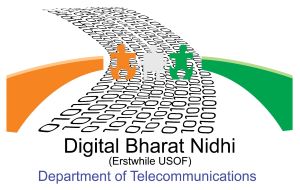Apart from the higher capital cost of providing telecom services in rural and remote areas, these areas also generate lower revenue due to lower population density, low income and lack of commercial activity. Thus normal market forces alone would not direct the telecom sector to adequately serve backward and rural areas. Keeping in mind the inadequacy of the market mechanism to serve rural and inaccessible areas on one hand and the importance of providing vital telecom connectivity on the other, most countries of the world have put in place policies to provide Universal Access and Universal Service to ICT.
The New Telecom Policy - 1999 (NTP'99) provided that the resources for meeting the Universal Service Obligation (USO) would be raised through a 'Universal Access Levy (UAL)', which would be a percentage of the revenue earned by the operators under various licenses. The Universal Service Support Policy came into effect from 01.04.2002. The Indian Telegraph (Amendment) Act, 2003 giving statutory status to the Digital Bharat Nidhi (DBN) was passed by both Houses of Parliament in December 2003. The Rules for administration of the Fund known as Indian Telegraph (Amendment) Rules, 2004 were notified on 26.03.2004. As per the Indian Telegraph Act 1885 (as amended in 2003, 2006 and 2008), the Fund is to be utilized exclusively for meeting the Universal Service Obligation.








